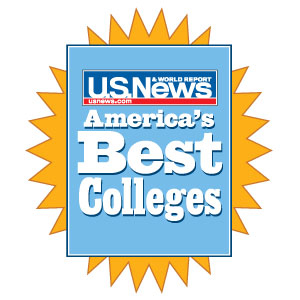
This year, the Rutgers University campus in Newark, New Jersey, was deemed to have the most diverse student body in the country. According to the U.S. Department of Education figures for the 2014-15 academic year, Blacks were 18 percent of the enrollments at the Newark campus. Whites were 25 percent of the undergraduates and Hispanics were 24 percent. Some 21 percent of undergraduates were of Asian descent. Other universities rated as the most diverse were Andrews University in Berrien Springs, Michigan (19 percent Black), St. John’s University in Queens, New York (14 percent Black), the University of Houston (11 percent Black), and the University of Nevada Las Vegas (8 percent Black).
Among the smaller liberal arts institutions, the University of Hawaii at Hilo was rated as having the most diverse student body. Blacks are only 1 percent of the students but there are large groups of Asians, Hispanics, Native Hawaiians, and White students. Other small colleges rated as being the most diverse were Pacific Union College in Angwin, California (8 percent Black), SUNY College at Old Westbury (30 percent Black), and Pine Manor College in Chestnut Hill, Massachusetts (28 percent Black).


In the very white state of Vermont, College of St. Joseph, an independent Catholic college with approximately 350 students is the most diverse college in the state. Students of color make up approximately 45% of the student body, while 65% of students residing on campus are students of color. CSJ does not offer athletic scholarships, but a $15,000 Provider Scholarship requiring 15 hours community service per semester and a locked in tuition, room and board rate for four years Students backgrounds are African American, Dominican American, Cape Verdean American, Puerto Rican American, Haitian American, and Caucasian. Another key component of the diversity of the College is the STEPS Program which provides year around support for students who have aged out of the Vermont foster care system. They are never without food or residence. All of the STEPS students are Cauacasian. Additionally, many Caucasian Vermonters commute to CSJ, which is located in the small town of Rutland. Please contact me for additional information regarding this very unique setting.
Paula J. McGhee
Associate Vice-President of Student Affairs
Director of Diversity, Inclusion and STEPS Program